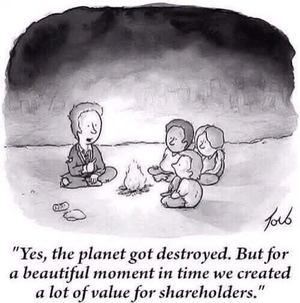superrific
Master of the ZZLverse
- Messages
- 12,129
But you're shitting on the explanation you offer. You're not saying, "they are doing this because X and X is a valid reason." You're saying "they are doing because X and X is a lot of bullshit." That makes it imperative for you to demonstrate that X is in fact the reason.Im not trying to “debunk” anything. Just offering an explanation for something that has eluded me for a while.
And what you cited is not the reason. It's not remotely the reason. If you look at the actual law -- and I had a chance to do so glancing over the Supreme Court decision -- it says nothing about AI. Moreover, there are ways for TikTok to evade the ban that would not affect the AI application, which strongly suggests that the AI application is not the issue. For instance, if TikTok was sold to OpenAI, it would no longer be banned. And that would be true even if OpenAI was sharing its tech with China (which I assume it isn't). And if that presented national security concerns, they would be addressed with conduct remedies on OpenAI. But to say that this is about AI training data, when the remedy has nothing to do with AI training data, seems obviously false.
Moreover, the Supreme Court ruled unanimously that the law was valid. In so doing, they had to make determinations of what the law was doing. The Supreme Court focused on the data collection issue, writing:
"But TikTok’s scale and susceptibility to foreign adversary control, together with the vast swaths of sensitive data the platform collects, justify differential treatment to address the Government’s national security concerns."
12 judges have agreed with that assessment. Among them: Elena Kagan, Sonia S, K. Jackson, Sri on the D.C. Circuit. Those are powerhouse jurists. Meanwhile, zero judges have disagreed -- not even Naomi Rao, a right-winger. This unanimity is striking. Maybe they have more insight than you do? I think we can say for sure that there are lots of smart people who have concerns about tiktok that aren't about training AI. And if that's true, then your claim as to what this is "really about" is wrong.
This is, btw, a trope that I hate on both left and right: the "X is really Y" move. Just because a law helps a big business doesn't mean that assistance is why the bill passes. And if you were to apply that reasoning consistently, you'll quickly find yourself tied in knots. For instance, the US passed a law in the 90s to regulate fishing practices, requiring all nets to feature turtle-excluding devices. Well, you know who was a big supporter of that law? The U.S. fishing industry, because it raised the costs of small fishing outfits in Pakistan and Malaysia and thus prevented them from undercutting American prices for seafood. Obviously that's why the law passed, and the environmentalists and animal welfare activists who proposed it and championed it were just useful idiots and/or stooges.


